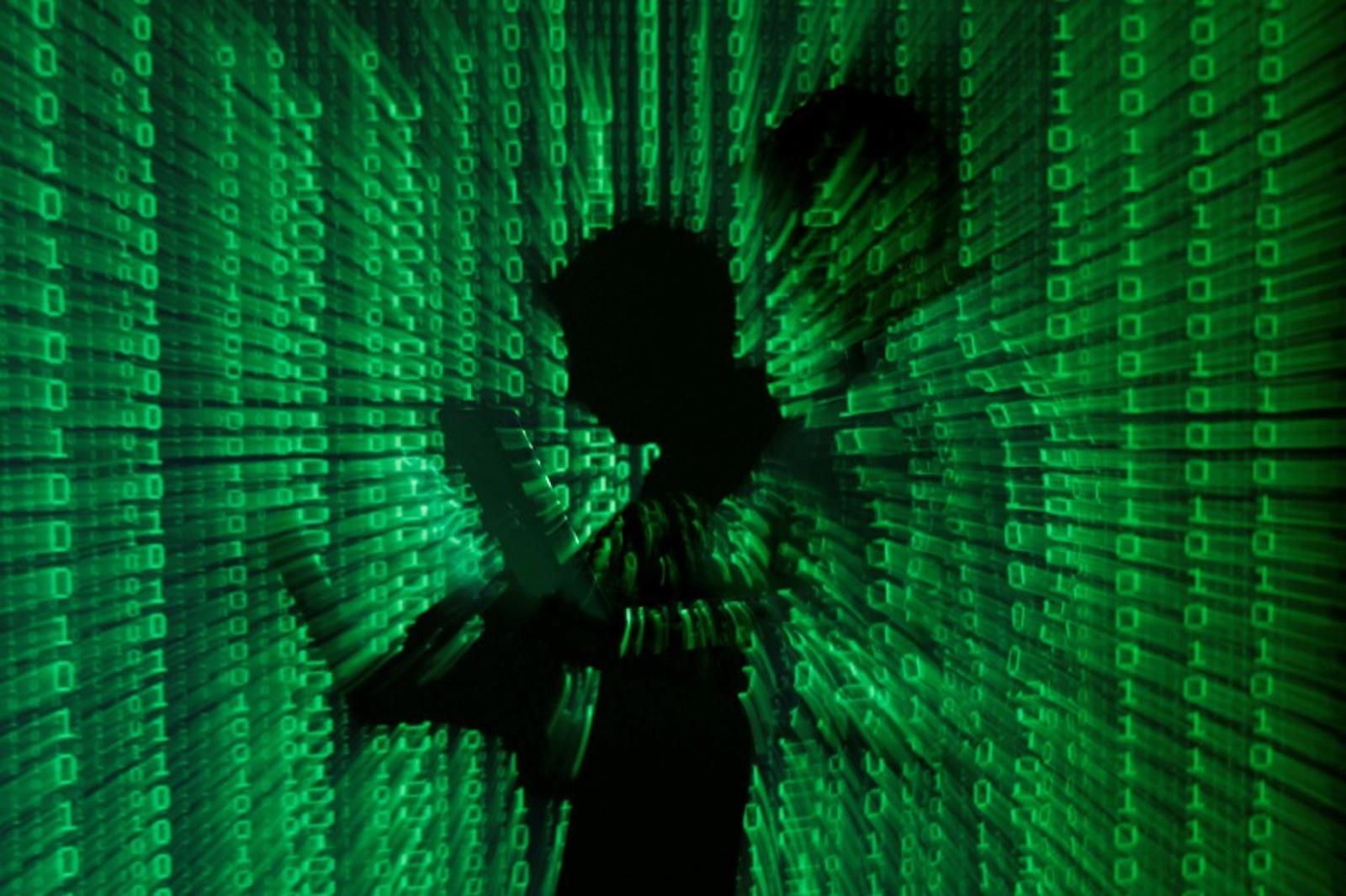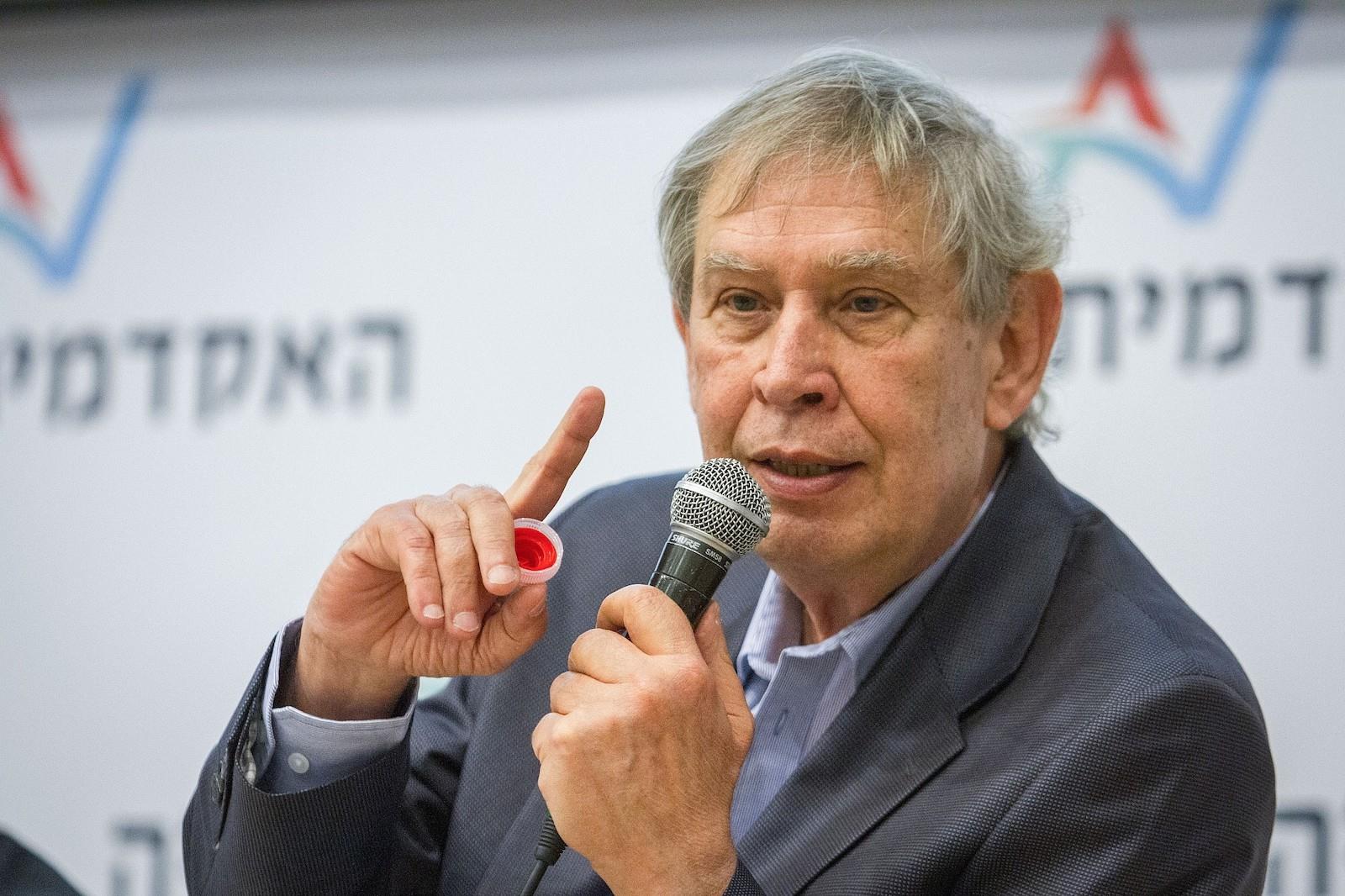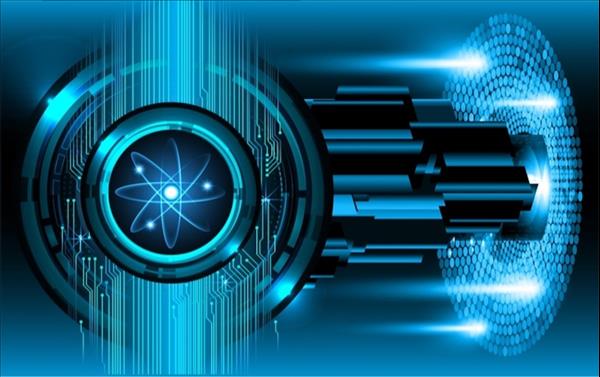
Cyber Threats 'A Silent Nuclear Weapon': Ex-Mossad Chief
SEOUL – Cyberspace has become a multidimensional threat channel enabling crime, warfare and ever-deeper political disruptions, a retired Israeli spymaster warned at a conference today (July 13) in Seoul.
Comparing cyber threats to“a silent nuclear weapon,” ex-Mossad head Tamir Pardo stated that the domain was, 30 years ago, stalked by professional state spy agencies expanding their capabilities from signals intelligence to the wider web.
But as connectivity has infiltrated all areas of modern life, the space has been invaded by malicious actors of multiple stripes.
Pardo, who headed Israel's famed intelligence agency under the Benjamin Netanyahu administration, was speaking at the Seoul Leadership Conference, which brought together experts in security, politics, diplomacy and business.
Pardo and another Israeli expert, Erfan Fine, CEO and co-founder of online security firm NanoLock, discussed the tactical uses and misuses of the domain for crime, espionage, combat and terrorism. But both made the case that cyber has now escalated to an entirely different level of threat: As a tool of cognitive warfare that can influence mass thinking.
“The Internet is a tool for the masses,” said Fine.“Once you master how to influence the masses, you have a pretty powerful tool.”

Cyberspace has opened the way for cognitive warfare. Image: Twitter
Used in that format, cyber caused countless deaths during the Covid pandemic – and has imposed potentially irreparable damage upon the United States as both a polity and a society.
Though he declined to discuss operations, Pardo illustrated how – just in recent days – malicious actors in the cyber sphere have caused a death that has been reported worldwide and a potentially deadly disruption in Israel.
Firstly, he noted that the assassin of Shinzo Abe had – in firearm-averse Japan – had used the web to learn how to improvise the gun he wielded to kill the former Japanese prime minister.
That made international headlines. But Pardo also discussed a lower-profile incident that occurred earlier this year in Israel.
The director of a hospital's emergency clinic entered his office in the morning and discovered when he logged on that his database had been entirely deleted.
“Fifty years of data was lost!” Pardo said.“Nobody knew what drugs to supply, or what patients were sick with, or how sick they were. They had to start using paper and pencils.”
It took the hospital two weeks to get a new system up and running, Pardo said. These kinds of cases“have been seen all over the world in the last five-six years,” he added.
When it comes to cyber terrorism, due to the anonymity that the Internet grants assailants, even a government as threat-centric as Tel Aviv has been unable to craft effective responses.
Pardo noted that Israeli villages near the Gaza Strip hit by rockets fired by militants can receive governmental compensation.
“If a rocket hits a small place manufacturing something, the next day, people from the government assess the damage and pay everything to restore it to manufacturing again – that is easy,” he said.
“But what if the attack was not by a missile, but by a bunch of kids from Gaza who hit the same place and damage the machines by reconfiguring them or deleting their database?” he asked.“Who pays for that? Nobody.”

Ex-Mossad head Pardo makes a point in a file photo. Image: Twitter
While terrorism is both deadly and destructive it is at least often rational. One of the world's worst cyber disruptions stemmed from something as inane as a battle between online gamers that spun out of control.
One group of gamers used malware in order to cripple the servers used by a rival group of gamers, Fine said. What became known as the“Mirai” attack of 2016 became a worldwide phenomenon that bought down Internet services across much of North America and elsewhere.
But even that scale of threat is minimal compared to the broader and more sophisticated threat cyber now represents.
The most insidious and dangerous uses of cyber today impact war-making, global supply chains and even national polities.
As battle rages in Ukraine, cyber war is a crucial component of the conflict. Both sides are using smart and guided missiles, drones and munitions and seeking to infiltrate, spoof and/or take down each other's communications and global positioning networks.
But that is tactical. What of economic warfare?
“It's a very industrial war – harming supply chain, harming food supplies – it is not just missiles versus missiles,” said Fine.“The war in the field is a horrible war, but the outcome is that there will be starving people in Africa – which is horrible by itself – but it will create opportunities for food exploiters.”
And there is more strategic use of cyber technologies in play: Winning hearts and minds.
“The amazing story is that what information is coming out of this war is being manipulated by both sides and used for its own needs,” said Fine.
“In times of war, you can do everything, not just the classics. I can turn off the lights in Kiev – or I can manipulate the information coming out, or manipulate information about, say, the way the West treats Russia,” he said.
A massive change in thought patterns, engineered in the cyber domain, took place during the Covid-19 pandemic, said Pardo.
“Think about all the propaganda and all the methods blown into the air against taking vaccines or boosters for Covid 19,” Pardo said.“It was done using social media [by] those who do not believe in vaccinations.”
Due to a lack of data, it is impossible to count the number of those who have died worldwide through vaccination refusal.

A street artist paints a mural depicting Covid-19 frontline workers along a street in Hanoi on June 15, 2021. Photo: AFP / Nhac Nguyen
“It created a lot of trouble,” Pardo said.“Instead of having 99% of people who would be vaccinated…we reached only 60 or 70%.”
And that scale of thought engineering is not the apogee. Arguably history's most damaging outcome from cyber action was either a brilliant cognitive warfare attack – or a mistaken belief in a brilliant cognitive warfare attack.
Pardo recalled that the day after Donald Trump won the US presidency in 2016, sitting president Barack Obama ordered an investigation into possible Russian intervention in the election.
The ramifications horrified the Mossad chief.
“I met some old friends there and I said, 'Don't investigate! It is so hard to find real evidence of what has been done and by whom, and it will take years,'” he recalled.“Three years later, US society was torn apart; some believed, half did not believe it. We saw the consequences when after the last election, Trump did not accept the results.”
America is now deeply divided against itself. Some even fear a new civil war.“Think about the power of cyber,” Pardo warned.“It can tear societies apart.”
Yet the ease of communication, information sharing and commerce that the Internet offers, packaged into ever-more convenient, always-on, must-have devices, is irresistible. Add to these lures its seamless international connectivities, and defenses are porous.
“We are living in a global village with no frontiers and no boundaries so regulators have to do their job but each of us should do it,” he said.“Every industry should take proper care to defend themselves, every hospital, every school, every household. Top-down and bottom-up.”
Follow this writer on Twitter @ASalmonSeoul

Legal Disclaimer:
MENAFN provides the
information “as is” without warranty of any kind. We do not accept
any responsibility or liability for the accuracy, content, images,
videos, licenses, completeness, legality, or reliability of the information
contained in this article. If you have any complaints or copyright
issues related to this article, kindly contact the provider above.

















Comments
No comment